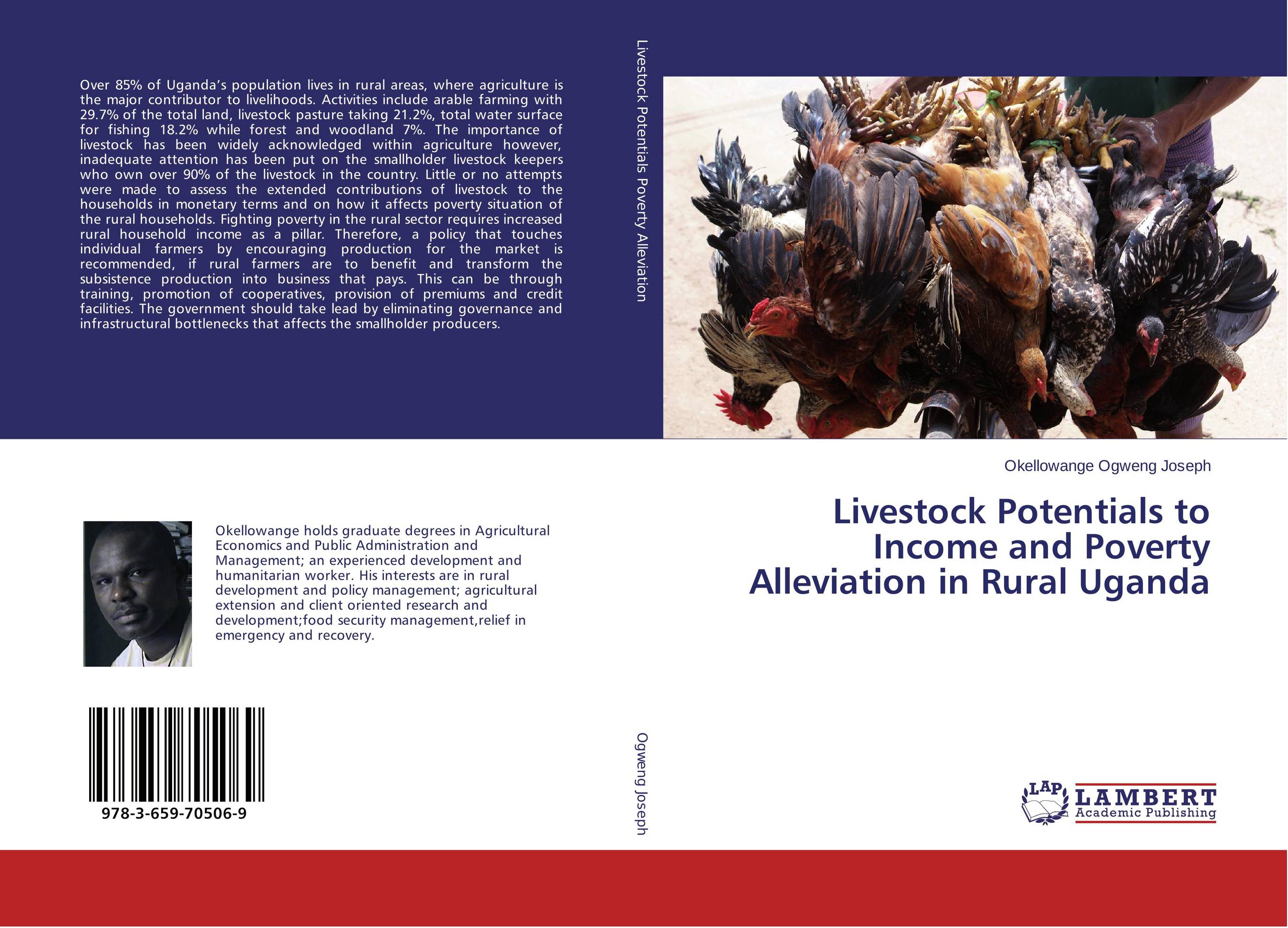| Поиск по каталогу |
|
(строгое соответствие)
|
- Профессиональная
- Научно-популярная
- Художественная
- Публицистика
- Детская
- Искусство
- Хобби, семья, дом
- Спорт
- Путеводители
- Блокноты, тетради, открытки
Livestock Potentials to Income and Poverty Alleviation in Rural Uganda.

В наличии
| Местонахождение: Алматы | Состояние экземпляра: новый |

Бумажная
версия
версия
Автор: Okellowange Ogweng Joseph
ISBN: 9783659705069
Год издания: 2015
Формат книги: 60×90/16 (145×215 мм)
Количество страниц: 156
Издательство: LAP LAMBERT Academic Publishing
Цена: 42107 тг
Положить в корзину
| Способы доставки в город Алматы * комплектация (срок до отгрузки) не более 2 рабочих дней |
| Самовывоз из города Алматы (пункты самовывоза партнёра CDEK) |
| Курьерская доставка CDEK из города Москва |
| Доставка Почтой России из города Москва |
Аннотация: Over 85% of Uganda’s population lives in rural areas, where agriculture is the major contributor to livelihoods. Activities include arable farming with 29.7% of the total land, livestock pasture taking 21.2%, total water surface for fishing 18.2% while forest and woodland 7%. The importance of livestock has been widely acknowledged within agriculture however, inadequate attention has been put on the smallholder livestock keepers who own over 90% of the livestock in the country. Little or no attempts were made to assess the extended contributions of livestock to the households in monetary terms and on how it affects poverty situation of the rural households. Fighting poverty in the rural sector requires increased rural household income as a pillar. Therefore, a policy that touches individual farmers by encouraging production for the market is recommended, if rural farmers are to benefit and transform the subsistence production into business that pays. This can be through training, promotion of cooperatives, provision of premiums and credit facilities. The government should take lead by eliminating governance and infrastructural bottlenecks that affects the smallholder producers.
Ключевые слова: Agricultural economics, Income and Poverty Reduction



